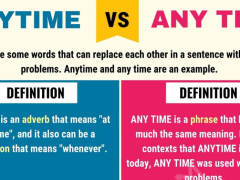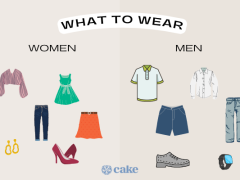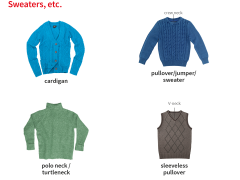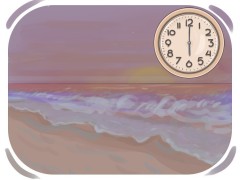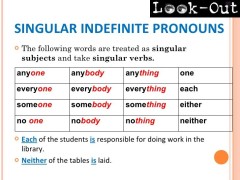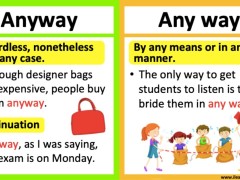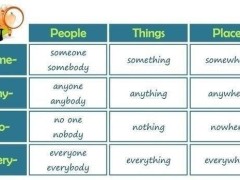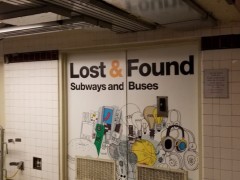noun [专属名词]军官;(政府或大机构的)官员,高级职员;警察,警官;船长;某一荣誉等级中的一分子(如英帝国勋位中四等勋爵士以下的级别) - The officer saw no obvious signs of a break-in.
verb [vi. 不及物动词]配备军官;指挥 - The officer listened, poker-faced.
noun [具体名词]<美>地铁;<英>地下通道 - A subway is the same as an .
verb [vi. 不及物动词]乘地铁 - He prefers travelling on the subway to riding in a limousine.
noun [专属名词](公共汽车、火车等的)车站;电视台,广播电台;站,所,局;<旧>社会地位,身份;须坚守的位置,岗位;驻地,基地;(电台或电视的)频率,频道;(澳大利亚或新西兰的)大牧场 - I get off at the next station.
verb [vt. 及物动词]驻扎,派驻;派往,安置在 - The train drew into the station.
noun [具体名词]火车,列车;(行进中的)行列,队列;随从,扈从;一系列,一连串(事件或想法);裙裾,拖裾;(转动的)轮系,齿轮组;(引爆炸药用的)导火线 - A train of vehicles, people, or animals is a long line of them travelling slowly in the same direction. (
verb [vi. 不及物动词]培训,训练;(为准备体育赛事而)操练;锻炼,培养(某一素质或能力);训(兽);(尤指用枪、照相机)对准,瞄准;使(植物)朝某方向生长,修整 - If someone trains you to do something, they teach you the skills that you need in order to do it.
adverb [时间副词]任何时候;无例外地 - The college admits students anytime during the year.
adverb [地点副词]在(向)市郊或富人区 - He rode uptown and made his way to Bob's apartment.
adjective [原级]在(向)市郊住宅区的;富人区的 - Uptown is also an adjective.
noun [专属名词]住宅区 - They live in an apartment uptown.
noun [具体名词]平台;讲台,舞台;讲台上的人(the platform);(火车站的)月台;<英>(公共汽车上供乘客上下车的)踏脚台;发言机会,论坛;契机;(政党的)纲领;厚底鞋;计算机平台;(海上)钻井平台;(供人上下小船的)水上平台;(火箭或导弹的)卫星发射平台 - Nick finished what he was saying and jumped down from the platform.
- Platform 4 四站台
- Line 16 地铁线
- Room 438 房间号
adjective [原级]明亮的;鲜艳的;聪明的;欢快的,有活力的;光明的,有希望的;清晰嘹亮的 - I was convinced that he was brighter than average.
noun [具体名词]<美>前大灯,头灯;明亮醒目的颜色 - The brights on a vehicle are its headlights when they are set to shine their brightest. (
adverb [程度副词]<文>光亮地,明亮地 - He smiled brightly as Ben approached.
bright red 鲜红色;
bright yellow 明黄色;
bright blue 宝蓝色
bright future / prospect 光明的前景
look on the bright side of things. 要看到事物好的一面。
She is bright / clever. 她聪明
verb [vt. 及物动词]穿(衣服),戴(首饰等);蓄(须),留(发);销蚀,磨损,踩出(路),磨出(洞);流露,面带(某种表情);使疲乏,使虚弱,使厌倦;经久耐用;不显老;<英,非正式>允许,接受;(船)升,挂(旗);<文>消磨(时间) ;(航海)使(船头)转向下风 - He was wearing a brown uniform.
noun [具体名词](特定人群、场合或用途穿的)服装;穿,戴;(因长期使用而造成的)磨损,损坏;耐用性,经久性 - The shop stocks an extensive range of beach wear.
- She wears a dress. 她穿着一件裙子。
- He wears a black tie. 他戴着一条黑色的领带。
- He wears a cool hat.他戴着一顶很酷的帽子
- He wears a watch. 他戴着一块手表
put on v. 穿上,戴上
- Put on your dress.
- Put on your watch.
verb [vi. 不及物动词]期待;预计;要求,指望;认为;怀孕 - If you are expecting something or someone, you believe that they will be delivered to you or come to you soon, often because this has been arranged earlier. (
vt.&vi. 预计,预料
- Jim has failed in mathematics as his teacher expected.正如他老师所预料的那样,吉姆数学考试没及格。
vt. 等待,期待,盼望(心理上的等待)
- They are expecting guests tonight. 今晚有人要去他们那里作客。
expect 所表示的等待一般暗含着根据某些信息或规律而作出相应反应的意思,而 wait for 主要接续“等待”这个动作本身。
expect sth.
- I expect a letter from Jimmy.
expect sb.to do sth. 期待某人做某事
- I expect you to write back.
- I expect my mother to come back.
wait for sth./sb. 动作上的等待
- I wait for my mother.
vt. 认为,猜想(一般用于口语)
- I expect so./I think so. 我希望如此[口语]
- I expect you’ve heard the news. 我想你已经听到这个消息了。
noun [专属名词]路上行驶的车辆,交通;(沿固定路线的)航行,行驶,飞行;运输量;非法交易;信息流量,通信(量) - We were stuck in a traffic jam.
verb [vi. 不及物动词](非法)进行…交易,做…买卖;在…通行 - Turn left at the traffic lights.
traffic police 交警
traffic lights 交通灯,另义为拐弯口, 红绿灯, 十字路口
traffic jam/block 交通堵塞
- I spend a lot of time in traffic jam heavy traffic 繁重的交通
- I was ordered to drive in heavy traffic. (in heavy traffic 交通拥挤)
first crossing/turning 叉路口, 拐角
traffic accidents 交通事故:指在道路上发生的车辆碰撞或其他交通相关的意外事件。
- The number of traffic accidents has been increasing in recent years.近年来交通事故的数量一直在增加。
data traffic 数据流量:指在互联网上通过移动通信网络或固定通信网络传输数据的总量。
- I need to buy more data traffic for my phone plan.我需要为我的手机套餐购买更多的数据流量。
noun [专属名词]针织套衫,毛线衫;大量出汗的人;发汗剂;厚运动衫 - The fence snagged my sweater.
adverb [时间副词]在今晚,今夜 - Tonight he proved what a great player he was.
noun [抽象名词]今晚,今夜 - Tonight is the opening night of the opera.
noun [专属名词]渡船,摆渡;渡口 - They had recrossed the River Gambia by ferry.
verb [vt. 及物动词]摆渡,渡运;空运 - If a vehicle ferries people or goods, it transports them, usually by means of regular trips between the same two places.
pronoun [指示代词]任何人;某个人;任何…的人;重要人物;任何一个人 - I didn't tell anyone, honestly!
noun [专属名词]照相机;摄影机 - Her grandmother lent her a camera for a school trip to Venice and Egypt.
noun [专属名词]帆布;画布,油画 - He took out a metal flask from a canvas bag.
verb [vt. 及物动词]用帆布覆盖 - She was in her studio again, painting onto a large canvas.
adverb [方式副词]不管怎样,无论如何;而且,加之;尽管,即使这样;对了,好吧(用于转换话题或回到前一个话题);(用于表明某事不重要)反正;至少;总之;(表示有意结束谈话)那么;究竟,到底;噢,啊(用于结束谈话或离开) - You use anyway or anyhow to suggest that a statement is true or relevant in spite of other things that have been said.
pronoun [指示代词]有人,某人;重要人物 - Someone left this note for you.
noun [专属名词]失物招领处(等于 lost property) - I was told over the train's loudspeaker that my purse was at the railway station's lost and found office.
noun [专属名词](厢式)小型货车;<美>面包车;<英>(铁路上运送包裹、邮件等的)车厢;<英>拖车;先锋 - The driver got out of his van.
verb [vt. 及物动词]用车搬运 - He inched the van forward.




